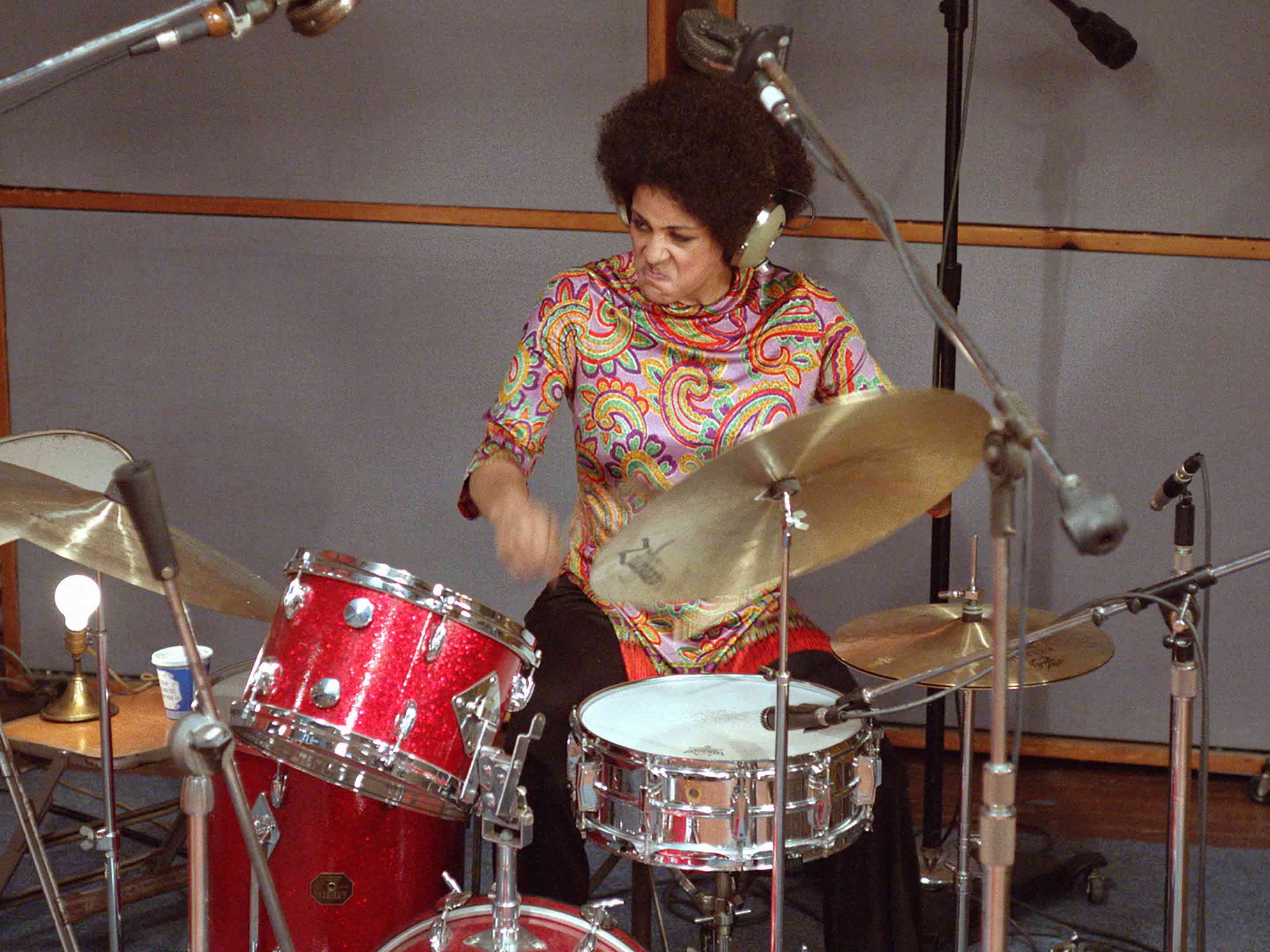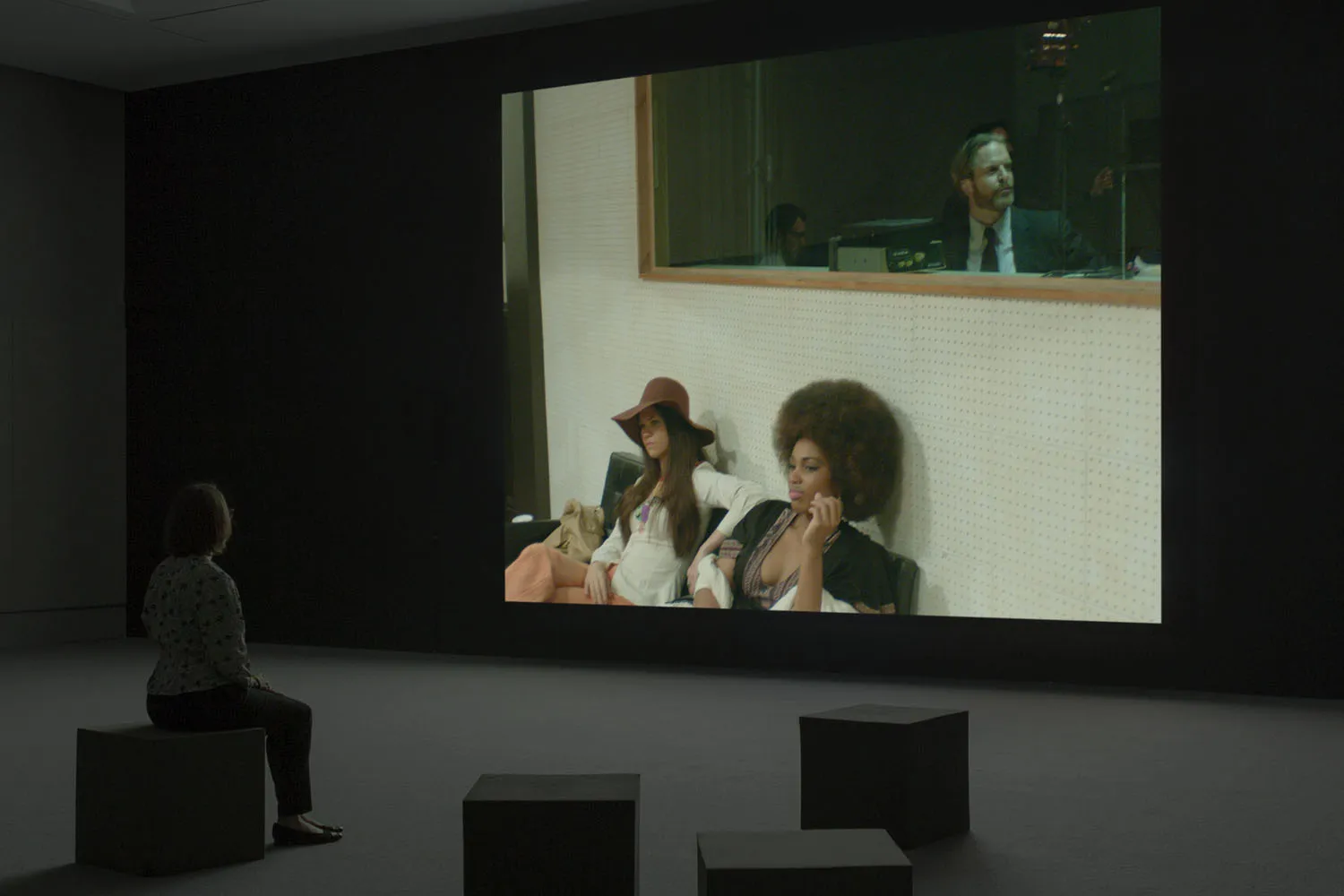Stan Douglas

After the presentation of Pierre Huyghe’s musical and visual installation Offspring as part of the new Pinault Collection museum’s exhibition Ouverture, the video installation by the Canadian artist Stan Douglas was presented in the Studio of the Bourse de Commerce.
The film Luanda-Kinshasa film by Stan Douglas takes place in the carefully reconstructed setting of the legendary Columbia Records recording studio as it was in the 1970s. Known to many as “The Church”, housed in a former Armenian church, this legendary New York studio, which saw Miles Davis play and Aretha Franklin sing, hosted some of the most iconic recordings in the history of contemporary music from 1949 to 1981.
Luanda-Kinshasa retraces a fictional musical recording. Musicians improvise a piece together in a visual environment which, from the style of dress of the protagonists to the recording equipment, helps to recreate a vintage and paradoxically unclassifiable, timeless atmosphere. An offbeat recall. The film composes and recomposes the montages in a random way to create a quasi-hypnotic loop of 6 hours of immersive music.
The title refers to two historical events: the mythical boxing match between Muhammad Ali and George Foreman in Kinshasa in 1971 and the liberation of the Angolan capital Luanda in 1974–75. Immersed in the imaginary world of the mid-1970s, surrounded by fake girlfriends, fake technicians, and fake journalists, the three guitarists, four percussionists, two keyboard players, and a single clarinettist play their roles with an unsettling and meticulous faithfulness. Without names, without words, this entirely fictional jazz funk jam also has a political dimension. Douglas explains that he was also inspired by Jacques Attali’s idea that musical formations can anticipate and carry a vision of new social formations.
With this film, drawn into the big screen, the viewer is fascinated by a moment that they sense as key, behind the scenes of the history of music, and yet they are faced with a piece of fiction, carried away into an indefinite and subjective time, immersed in an almost infinite process of composition.
The artist returns to the African roots of the New York music scene of the seventies. The influence of Afrobeat is central, with a marked interest in musical fusions. Throughout this improvised score, the virtuosity of the musicians, their individual and collective playing, becomes palpable and exhilarating.
Stan Douglas
Stan Douglas was born in Vancouver in 1960, where he lives and works. He makes artworks (films, photographs, and installations) that show certain places or events in a new light. He is interested in the social aspect of progress in Western societies, particularly utopian philosophies, and their divisive political and economic effects. His questioning of the structural possibilities of film and video, supported by elaborate narrative frameworks, has produced many avant-garde works of contemporary art. Stan Douglas draws on the Hollywood film genre (including crime films and the western) and classic literary works (most notably those of Samuel Beckett, Herman Melville, and Franz Kafka) to create the contextual frameworks for his complex projects grounded in extensive research over time.
